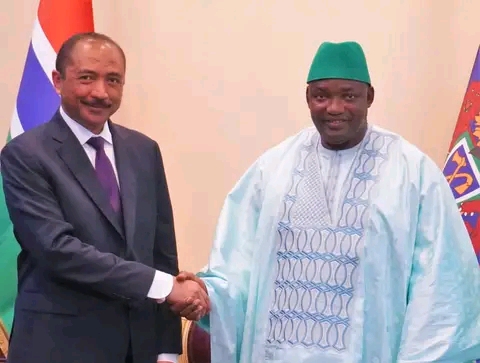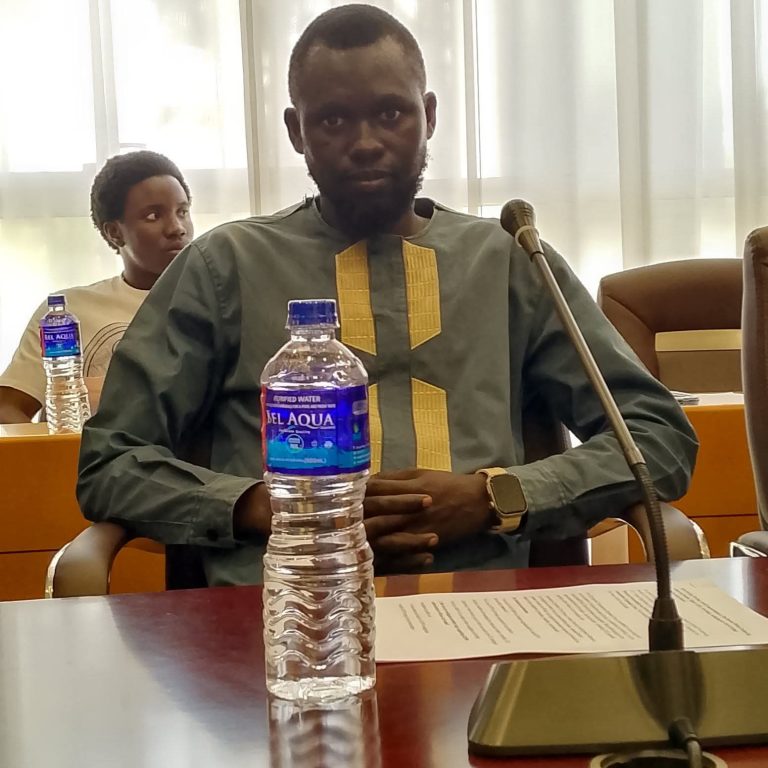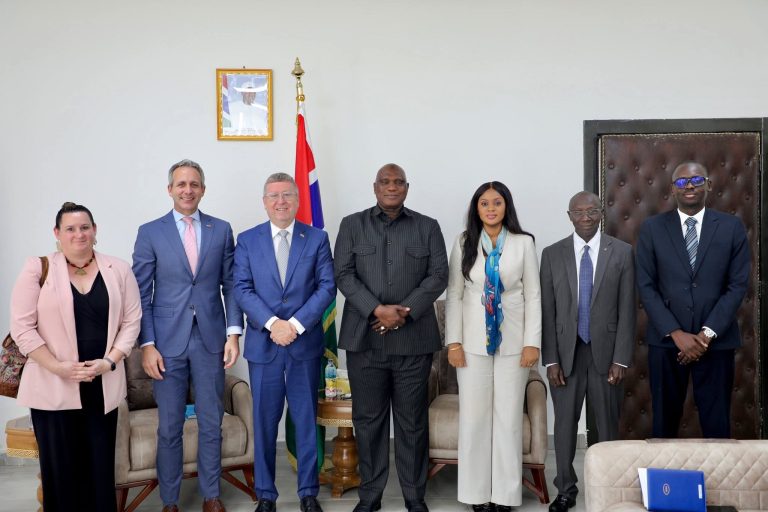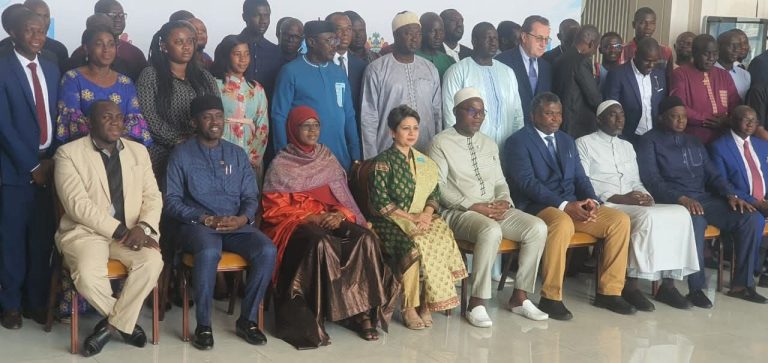
President Adama Barrow Friday received the IMF Mission Chief, Mr. Ivohasina Razafimahefa, who briefed him that The Gambia, for the first time, reached the final stage of its IMF program on a positive note.
Receiving the briefing with delight, The President said that despite the challenges in managing citizens’ expectations, his office and the government, by extension, took strategic decisions to ensure fiscal discipline to manage public finances better. He emphasized that they would do everything possible to improve the country’s scorecard. “At times, you take difficult decisions and do the right thing for the good of the majority,” President Barrow stressed. He congratulated his economic team and thanked the IMF for the guidance and support, adding that the transition was difficult with high expectations from the citizens.
The President pledged that his government would remain steadfast to maximize the social and economic scorecard for The Gambia. Acknowledging the deficit areas impacted by the outbreak of COVID-19 and the War in Ukraine, the President looks forward to more flexibility in the following program cycle to address the areas they have deficits.
The President indicated that his administration prioritizes digitalization and e-governance to increase revenue collection and reduce corruption. He referenced the digitalization of tax collection and performance contracts with SOEs as necessary domestic revenue collection measures to fast-track development examples.
President Barrow cited electricity and infrastructure as the key to the country’s advancement as the government works towards its target for universal access to electricity in remote areas.
The IMF Chief of Mission expressed confidence to proceed with a new country program as it is the first time The Gambia has reached a final assessment program. He gave an outline of the findings of his mission, stating the economic growth improved even though it had not reached the pre- covid level due to external shocks such as the post covid recovery. He pointed out the positive trends in tourism, remittance, and private and public construction works as good signs. The IMF Mission Chief noted the impact of global events on food prices and fuel, flexible exchange rates, and cross-border trade.
On the challenges, it was noted that inflation is high and public debt is still flat at 80% of GDP, but it recorded that foreign reserves and credit to the private sector are on the right path, with interest rates decreasing. Appreciating the government’s efforts for economic growth, Mr. Razafimahefa concluded, “The Gambia can be a model of a success story.”
The Minister of Finance and Economic Affairs, the Central Bank of The Gambia Governor, and other senior public officials accompanied the IMF Mission to the State House.






